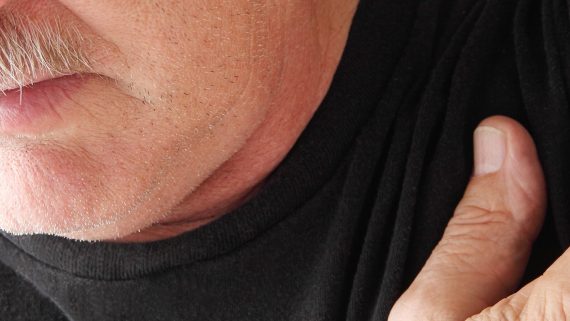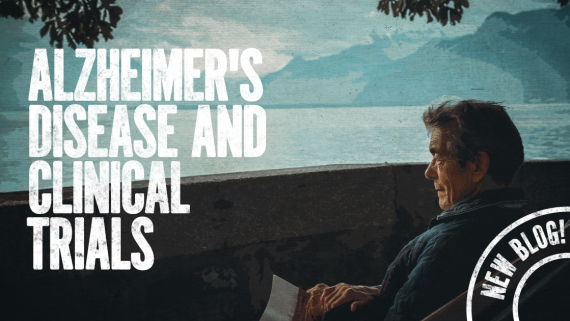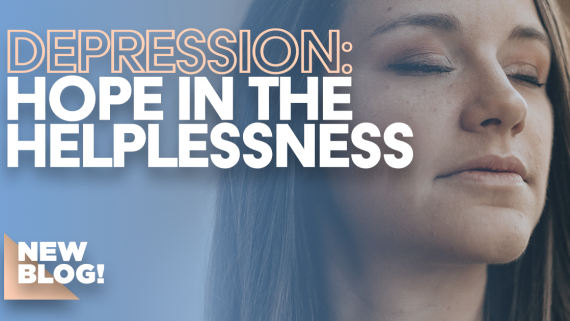What is it?
Hidradenitis Suppurativa (HS) is a chronic, inflammatory skin disease characterized by painful nodules and abscesses which form most commonly in sensitive areas: under arms and breasts, along buttocks and groin, though HS may appear anywhere there is hair.
When symptoms first appear, they appear as painful, recurrent pimples or cysts in telltale areas. Because of its appearance and location, HS is often misdiagnosed as ingrown hairs, folliculitis, staph infection, cellulitis, or an STD. But unlike those conditions, HS cannot be cured and the lesions left behind will often refill, have difficulty healing, and leave behind scars.
Women are diagnosed with HS 3x more often than men and their symptoms tend to start around puberty or other times of hormonal changes like pregnancy, postpartum, or changes in hormonal birth control.
Treatment options
Treatment with medications, surgery or both may help control symptoms and prevent complications. Some doctors may prescribe the following medications:
- Antibiotic creams. Mild symptoms might be managed with topical creams that fight infections, such as clindamycin and gentamicin.
- Systemic drugs. For more widespread diseases, antibiotics taken by mouth.
- Pain medication.If over-the-counter pain relievers don’t help, your doctor may prescribe a stronger type.
Clinical Research Studies
ActivMed Practices and Research is enrolling for a clinical research study that may be an option for those struggling with Hidradenitis Suppurativa. To learn more about the study and see if you qualify, click here.
Outlook
Although there is no known cure for HS, if you feel that you have mild hidradenitis suppurativa it can be treated with self-care measures by doing the following:
- Managing your pain
- Following a daily skin care routine
- Avoiding tight clothing
- Avoiding injuring the skin
- Keeping a healthy weight and staying active
- Considering altering your diet
- Avoiding all tobacco products.
Respiratory infections, like RSV and pneumonia, continue to wreak havoc on the elderly population year after year. Some call it a “hidden epidemic”. To better understand why the elderly are more vulnerable to respiratory infections, we need to look at what happens to our bodies internally as we grow older.
The Toll of Time
As we age, our immune systems become less effective, called immunosenescence. The immune response decline is different for everyone after age 65. However, everyone after that age is more susceptible to infections than when they were younger.
Risk Factors
With a less effective immune system combined with the increase and severity of a respiratory tract infection, the results can be life-threatening. Some risk factors include:
- Chronic Conditions- Heart disease, diabetes, stroke, and COPD are a few examples. Conditions that affect the ability to produce a strong cough can be especially dangerous.
- Infectious Environments- Any place where sick people gather for treatment or are living, such as hospitals and nursing homes.
Prevention
Experts agree that prevention is still the best defense against respiratory infection. The CDC has the following recommendations when it comes to reducing the chances of contracting a respiratory infection:
- Wash Your Hands Often– Use soap and water for 20 seconds. If soap is not available, use alcohol-based hand sanitizer
- Keep Up With Regular Vaccinations: Keep up to date on recommended vaccines
- Keep Hands off Your Face- Avoid touching eyes, nose, and mouth with unwashed hands
- Avoid Close Contact with Sick People- Avoid kissing, sharing drinks, or sharing eating utensils with people who have symptoms of being sick
- Cover Coughs and Sneezes- Cover mouth and nose with a tissue when you sneeze or cough. Throw tissues in the trash after
- Clean/Disinfect Surfaces- Disinfect surfaces that are frequently touched, such as doorknobs
- Stay Home When You Are Sick- Staying home (when possible) from work or other public places when you are sick prevents it spreading to others
At ActivMed Practices & Research, Inc., we are committed to not only working with patients to find current treatments that will deliver the most impactful results, but also working to develop new treatment options through clinical studies.
We are currently seeking patients for upcoming studies evaluating trial medications that may prevent RTI in those 65 and older. Qualified candidates who participate will receive study-related care at no cost. There is also compensation for travel. To learn more and see how you or someone you love may qualify for a study, please click HERE.
References:
https://www.cdc.gov/rsv/factsheet-older-adults.html
https://www.infectioncontroltoday.com/infections/older-adults-higher-risk-respiratory-infections
https://www.aging.com/what-causes-pneumonia-in-the-elderly/
Despite current treatment options, there is still no cure for Alzheimer’s. Current treatment options only temporarily slow the symptoms of dementia and keep them from worsening. Finding more effective options and even a cure comes down to testing new potential treatments via clinical trials.
What is Alzheimer’s?
Alzheimer’s Disease (AD) is the most common form of dementia and is not a normal part of aging. It causes memory loss and other cognitive problems that gradually worsen over time. Eventually, every aspect of a person’s daily life is impacted when they have AD. Early stages impact memory, while later stages come with mood changes and behavioral changes. It can even affect a person’s ability to walk, speak, and swallow.
Although the majority of those affected with AD are over 65, approximately 200,000 Americans under 65 have early-onset Alzheimer’s. On average, a person lives 4-8 years after diagnosis, and up to 20 years depending on various factors. It is the 6th leading cause of death in the U.S.
Don’t Just Hope, Help.
More participants are needed in clinical trials to help evaluate potential treatment options and to find a cure. Through the clinical trial process, more effective treatments and prevention opportunities can be found.
Beta-amyloid protein and biomarker studies that explore what causes AD have provided cutting-edge treatments and led to better medical care. However, none of these advancements are possible without volunteers. Here are some of the benefits of participating in a clinical trial:
- You can help future generations
- Participation may help you get more involved in your healthcare
- You or your loved one may have access to new treatments not available to the public
Volunteers that have a family history of AD, dementia and even those with no history are all needed. The data that is gathered from your results are used to determine whether a new medication or therapy is safe and effective.
ActivMed Practices & Research, like many other research facilities, has joined the fight to cure Alzheimer’s by conducting clinical trials. If you or someone you love is diagnosed with Alzheimer’s and are interested in hearing more about our study opportunities, click HERE.
References:
https://www.alz.org/alzheimers-dementia/what-is-alzheimers
Life is a constant roller coaster of challenges and victories. Feeling sad or hopeless is something we all experience at some point in our lives For many, these feelings persist and may require medical intervention.
The Black Hole
Depression is one of the most common mental health disorders in the U.S., affecting men, women, and children from all walks of life. Depression can deeply impact every aspect of life. Symptoms can include difficulty concentrating, anger and irritability, loss of energy, and loss of interest in the things we once loved.
Depressive episodes are when these symptoms do not go away for long periods. Below are some quick facts about those affected:
- 3 % of American Adults (18+) are affected
- Depression is more prevalent in women than men
- 9 million children (ages 3-17) have been diagnosed with depression
- Adults with depressive disorders have a 64% higher chance of developing coronary artery issues
Types of Depression
Depression affects everyone differently. How each person responds to treatment is also different, so understanding the various types of depression can be an important piece in finding the most effective treatment. Below are some common types of depression along with a general understanding of each:
- Major Depression– Recurrent depressive episodes that if left untreated, can last up to 6 months.
- Atypical Depression– Those who have it experience a temporary mood elevation from positive events such as receiving good news, hanging out with friends, etc.
- Dysthymia (Recurrent Mild Depression)– Symptoms are not as strong as major depression but can last for long periods. Those with this type of depression feel moderately depressed more days than not.
- Seasonal Affective Disorder (SAD)– Feeling of sadness, stress, and being tense beginning in fall or winter when daylight hours are reduced. This usually lasts until spring, when there is more sunlight.
Clinical Studies and Depression
Up to 80% of those treated for depression show improvement in symptoms within 4-6 weeks of beginning psychotherapy, medication, attending support groups, or a combination of these. Sadly, 2 out of every 3 people with depression do not actively seek treatment or receive proper treatment. Consulting your physician is the only way to truly be diagnosed and treated properly.
A clinical study conducted by ActivMed in our Methuen location could also benefit individuals who battle with this disorder. If you or someone you know is suffering from depression or feel like pieces are missing from your current depression treatment, these studies may be a great opportunity. Qualified candidates who participate will receive study-related care at no cost and compensation for travel. To learn more about our depression studies, please click HERE.
References:
https://www.helpguide.org/articles/depression/depression-symptoms-and-warning-signs.htm
https://www.dbsalliance.org/education/depression/statistics/
Intro
When a loved one is diagnosed with Parkinson’s Disease (PD), finding ways to provide help that is useful and impactful is not out of reach. You have resources that you can access, including recommendations straight from the Parkinson’s Foundation. If you have a loved one with Parkinson’s, you can help!
What is Parkinson’s?
PD is a neurodegenerative disorder. The disease affects the dopamine-producing neurons that are responsible for signaling the brain to move. Persons diagnosed either have low levels of the dopamine-producing neurons or have an absence of them.
Early stages of PD include loss of smell and writing that grows smaller over time as well as a minor tremor in your finger, thumb, hand, or chin while at rest.
Symptoms
The disease progression of PD differs for each person and develops slowly. There are five stages of the disease that range from zero (no symptoms) to 5 (advanced symptoms). While the disease itself is not fatal, complications from the disease can be serious. Generally common symptoms after onset can include:
- Tremor- Occurs mainly at rest and looks like the individual with PD is holding a pill between their thumb and forefinger and rolling it around continuously, known as ‘pill-rolling’
- Bradykinesia– Slowness of movement.
- Limb Rigidity-Stiffness in arms or legs.
- Gait/Balance Problems-Trouble walking or maintaining balance.
How you can Help
Now let’s take a look at some ways you can support your loved one after they have been diagnosed with Parkinson’s. Here are a few things the trusted experts recommend:
- Obtain Knowledge- Learn everything you can about Parkinson’s. For example, learning how the disease progresses can help you spot worsening of symptoms. parkinsons.org is a great resource.
- Call a Helpline- The Parkinson’s Disease Foundation helpline has specialist available to help navigate all things PD. This is a resource for those diagnosed and their caregivers. The number is 800.4PD.INFO.
- Set Up a Time to Help- Sometimes offering is not enough. Set up a date and time to help clean, meal prep, etc.
- Encourage Exercise- Research confirms exercise helps the brain use dopamine more effectively. It also helps with balance and strength. Encouraging your loved ones to stay active is important in the progression of PD.
- Listen- Whether it is a friendly ear, a shoulder to cry on, or a person to wipe the tears of frustration, listening is essential.
You Can be the Difference
As you can imagine, depression and anxiety are common in patients diagnosed with Parkinson’s. Your loved ones need your support during their journey through PD. You can be the difference in their quality of life by taking action now.
At ActivMed Practices & Research, Inc., we are committed to not only working with patients to find current treatments that will deliver the most impactful results, but also working to develop new treatment options through clinical studies.
If you or someone you love has been diagnosed with Parkinson’s Disease, ActivMed Practices & Research, Inc. currently has enrolling studies for those seeking new treatment options. Qualified candidates who participate will receive study-related care at no cost. There is also compensation for travel. To learn more and see how you or someone you love may qualify for a study, please click HERE.
References:
https://www.healthline.com/health/parkinsons-disease/how-to-support#1
https://www.parkinson.org/understanding-parkinsons/what-is-parkinsons
https://www.parkinson.org/Living-with-Parkinsons/Resources-and-Support
We had a great time at the Andover Bike Rodeo & Community Wellness Fair.
The kids learned bike safety, and parents learned about various health topics.
Laura & Karina from our Methuen site helped raise awareness about clinical research and helped people sign up for Free Health Screens.


Over 400 people came out to learn about dementia care from Teepa Snow! Our CEO, Terry Stubbs, had a great time interacting with senior care providers and sharing information about the clinical research we do at ActivMed.






June 4, 2019
Our CEO, Terry Stubbs, will be speaking at Wingate Healthcare in Haverhill, MA 
Shortness of breath, fatigue, reduced ability to exercise, irregular heartbeat, congested lungs … these are just a few symptoms of heart failure. The worst part about it? Currently, there is no cure.
What is heart disease?
Heart Disease doesn’t refer to just one condition, rather it refers to a multitude of heart conditions such as heart attack, coronary artery disease, atrial fibrillation, stroke and many more. It sounds deadly, but it actually doesn’t mean your heart has “stopped” or is about to stop working.
When living with heart disease, your heart does not pump blood and oxygen throughout the body the way that it should – this results in the symptoms you read above, and although it sounds like something that would be rare, it actually affects approximately 5.7 million people in the United States.

Can anyone get heart disease? Are there risk factors?
Your health is important and the choices you make when it comes to diet, exercise and health screenings play a role. However, there are some risk factors that you can’t control. Let’s take a look at some of the factors:
- Gender – males are typically at a greater risk than females
- Age – the older you get, the higher the risk
- Family History – if it runs in the family, you are more likely to get heart disease than someone who does not have a family history
- Smoking
- Uncontrolled Hypertension
- Physical Inactivity

What can I do to lower my risk?
The less “entries” you have into the “Heart Disease” drawing, the better. Meaning you should limit as much of the risk factors that are in your control as possible.
Eat Healthy – Be mindful of what types of food you’re putting into your body. It doesn’t have to be boring to eat clean, find healthy recipes here.
Exercise – Exercise isn’t just for the pro-athletes. Incorporate a style of exercise that you enjoy and try to do it 30 minutes a day or a couple of days a week. You could try walking, swimming, a fitness class, sports or even dancing.
Limit Stress – Easier said than done, but it’s very important. Those with high levels of stress and anger are at greater risk of heart attacks and strokes. Find coping mechanisms or things to do that help you calm down during stress.
Monitor Your Health – If you already have medical conditions like diabetes, hypertension, cholesterol, etc. make sure you are staying in a healthy range. Whether you have existing conditions or not, it’s always best to get an annual health screening.
Every FDA approval of new medicine starts with a medical research study, they are the key tools used to find better ways to treat and prevent medical conditions for today and the future. The providers at ActivMed Practices & Research, Inc. are currently enrolling for several clinical trials. Qualified candidates who participate will receive study-related care at no cost and receive compensation for travel. To learn more and see how you or someone you love may qualify for a study, click HERE.
As we embrace this year’s holiday season, it’s also a time to remember the value of community and what it means to give back. It is extremely important to us here at ActivMed to build and maintain relationships within our community. Throughout the years, the notable connections we have made with volunteers, patients, and other community members have allowed us to prosper and really make an impact for future generations to come. We feel it is our duty to do what we can to help build a better community.
This year, the ActivMed office in Methuen, MA is sponsoring two families from the EMMAUS house and holding a generic toy drive. The EMMAUS house provides emergency housing, affordable housing, services and job training, and much more. Also, any non-perishable food items are being collected to help fill the local food pantry.
In Portsmouth, NH the ActivMed office is participating in the ‘Pease and Carrots’ food drive. Donations sought for this drive are healthy, nonperishable food items or tax-deductible checks made payable to Gather, which can then purchase needed items, usually at lower prices than are available to the general public. This event usually supports the Food Pantry until the spring. ActivMed has also been working with Gather a lot this year and is happy to show them support.
The Portsmouth site donated clothing to the York County Shelter. The shelter programs have evolved and developed with the goal of getting families and individuals permanently housed and productively engaged in the community.
The Beverly, MA location also donated to the Beverly Bootstraps Program that provides hot meals to those in need. With many less fortunate children and families in the area ActivMed is happy to help brighten somebody’s Christmas Day.
In addition to our involvement with local community organizations, we also provide free health screenings. We offer testing for a number of indications like: diabetes testing, depression/anxiety screenings, blood pressure testing, memory testing, cholesterol testing, and breathing testing. Simply make an appointment to come into one of our three facilities in Massachusetts or New Hampshire by clicking HERE.
The term ‘millennials’ refers to the roughly 85 million people reaching young adulthood in the early 21st century. This group has also been deemed ‘Generation Y’ and typically refers to those born in between the 1980s and 1990s. Millennials may often be viewed by sociality as a lazy and entitled group of individuals. Yet, it is estimated that approximately 1 in 5 millennials suffer from depression. Why is depression among this generation in America soaring?
One reason for this epidemic is supply and demand in the workforce. Millennials are the most educated generation in history. Unfortunately, the supply of educated millennials significantly exceeds the demand for workers. According to Forbes, the millennial unemployment rate rests at 12.8%, compared to the national average rate of 4.9%. Many that do find jobs, end up settling into low paying positions that don’t utilize their skills, or jobs that only offer part-time work.
Another factor contributing to depression amongst Generation Y is student loan debt. According to The New York Federal Reserve the total student loan debt is estimated to be over $1.3 trillion. Student loan debt in the U.S. is more than auto and credit card debt combined, only falling short of mortgage debt. The average student loan debt for a millennial is $30,000 while the average salary is less than $35,0000 annually. This may also be a contributing factor to why more than 30% of millennials are living back with their parents.
Growing up with technology on the rise and at their fingertips, millennials and are used to instant gratification. The explosion of social media created ways to filter their lives, and may not depict reality. Preoccupations with comparing each other’s lives can also lead to serious symptoms of depression.
If you or someone you love is struggling with depression and not happy with current treatment, ActivMed is currently enrolling in studies for those seeking new treatment options. Study participants who qualify are closely evaluated by a board-certified physician and research staff. Reimbursement is also available for travel in the form of travel stipends. To learn more and see how you or someone you love may qualify for a study, click HERE.



















